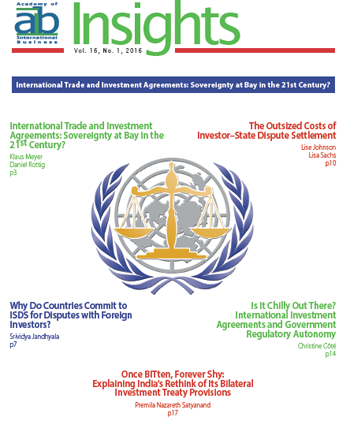Why are the TPP and TIPP so Controversial?

Prof. Klaus Meyer Co-Edits AIB Insights Issue on International Trade Agreements
The Rules of the Game for international business are increasingly set in bilateral and multilateral treaties between nation states. Throughout the second half of the 20th century, this regulatory framework has evolved to facilitate international business, and enable globalization. However many treaties have been controversial, particularly when they serve competing interest groups within a country. The classic example is the tension between consumers benefitting from lower prices of imported goods and domestic businesses lobbying for trade protection to curtail foreign competition and so retain their profitable businesses. Treaties are also exploited by local politicians looking to stir up populist sentiment by stoking fears that they may result in a significant loss of jobs – either because they make it easier for domestic businesses to move abroad to emerging markets to lower labour costs, or hire foreign workers for jobs in the domestic market. We can see this playing out in the US right now in the heated rhetoric from candidates from both parties in the US Presidential race over NAFTA and the TPP.
The new regulations created through international treaties and multilateral organizations have potentially profound implications for international direct investments, and the operations of multinational enterprises. Phillips Chair in Strategy and International Business at CEIBS Prof. Klaus E. Meyer has brought together renowned scholars to explore the key arguments and controversies surrounding international trade and investment agreements in the latest issue of AIB Insights, which he co-edited. The journal is published by the AIB (Academy of International Business).
Read Prof. Meyer’s introduction to the issue here, along with the other papers in the journal.













